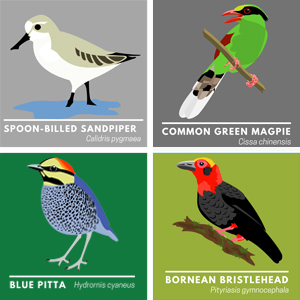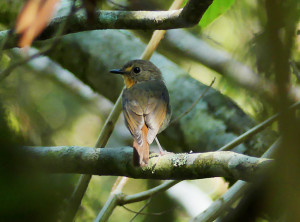
As part of the recent tour of Sulawesi/Halmahera that I have finished leading, we made an excursion to Makassar, in Southwest Sulawesi, to head to the foothills of Mount Lompobattang which is a fairly recently recognized centre of endemism where there are a few endemic birds and mammals as well as a number of distinct subspecies which may well be split in the future; for us the main target was Lompobattang Flycatcher, a little-known and endangered species of Ficedula flycatcher.
We stayed at an old Dutch colonial hotel and an early start saw us walking, in darkness, around 1km through farmland and forest patches to the site for this bird. As it became light around us we could see that we were in an area of secondary forest with some original, large trees and although we hear the song of the flycatcher a few times our first efforts were completely fruitless and indeed for the first hour it looked like the whole excursion could come to an unsuccessful conclusion with no birds whatsoever seen! However, as the sun penetrated the forest bird activity increased dramatically to give us a very successful and enjoyable morning of birding.
Although our early efforts to find the flycatcher did not amount to much as soon as the sun began to reach the forest interior there was bird song and activity to interest us with Sulawesi (Rusty-bellied) Fantail and a couple of flyover Golden-mantled Raquet-tails being the first sightings. Although we were trying to lure in the flycatcher we could not ignore the nearby call of Ashy Woodpecker and shortly after heading towards the call we encountered a pair of these magnificent birds. We were able to watch them for quite some time as they flew back and forth, eventually settling to forage on a nearby tree. The birds here being of the subspecies wallacia with the males having a large area of red on the face – this was a much anticipated bird and enjoyed by all; a group of noisy Piping Crows was also a great sight.
With no sight of our flycatcher I played the call of the local race of Sulawesi Leaf Warbler and it did not take long before a pair came to check us out. This bird is potentially a split as Lompobattang Leaf Warbler and we could all see obvious plumage differences (particularly a crown stripe) and hear differences in the song. Considering other leaf warblers have been split with much smaller differences in song and plumage it would seem likely that this will be elevated to full species level at some point.
Black-ringed White-eye and Streak-headed Dark-eye soon followed and we also tracked down a calling Spot-tailed Sparrowhawk for some nice additions to the morning but that flycatcher remained elusive. Sometimes being in a large group makes it hard to just listen and creep quietly through the forest, so with our tactics failing us I decided to change things and walked off on my own to try and locate other birds. Well, of course, it did not take long before I saw a bird fly up off the forest floor and although the first bird I got my binoculars onto was another Leaf Warbler I knew that something else was around. Moments later a Lompobattang Flycatcher was perched right in front of me and I fired off some very panicked shots before whistling to alert the rest of the group.
Fortunately everyone was not far away and the bird stayed for all to get good views over the next few minutes and allow us to take some more photos from a variety of angles.
We had a long journey back to Makassar and onto Manado in the North so with this success we began heading back to our vehicles getting some great views of a pair of Sulawesi Serpent Eagles along the way.
Habitat destruction is one of the main reasons that Lompobattang Flycatcher is listed as an endangered species and we felt very lucky to have found this bird, particularly when other birding groups in the same area shortly before us had told us that they had failed to find it.


 September 28th, 2017
September 28th, 2017  Nick
Nick 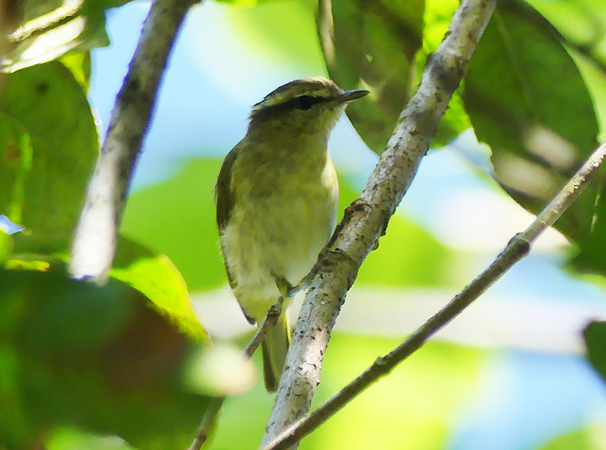
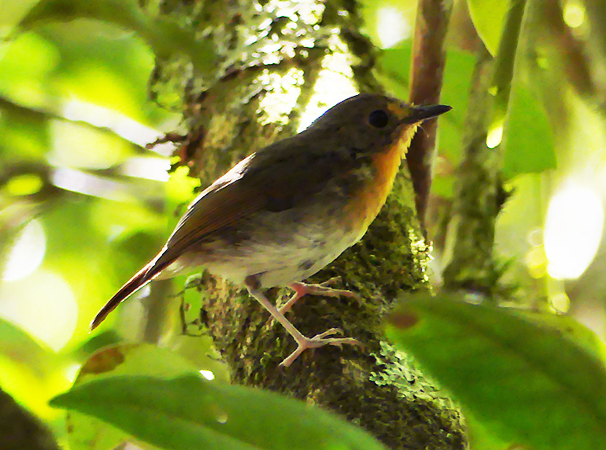
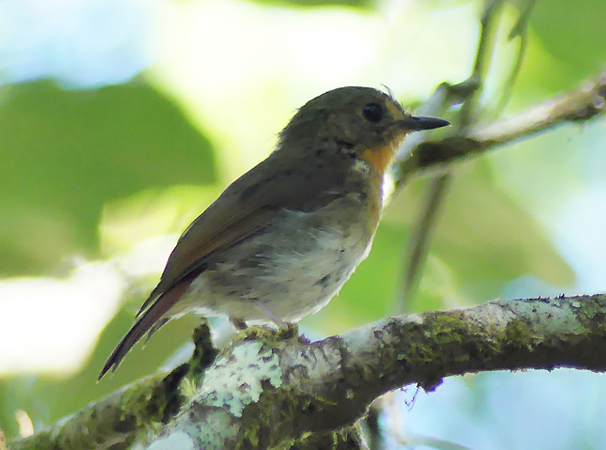

 Posted in
Posted in  Tags:
Tags: 






